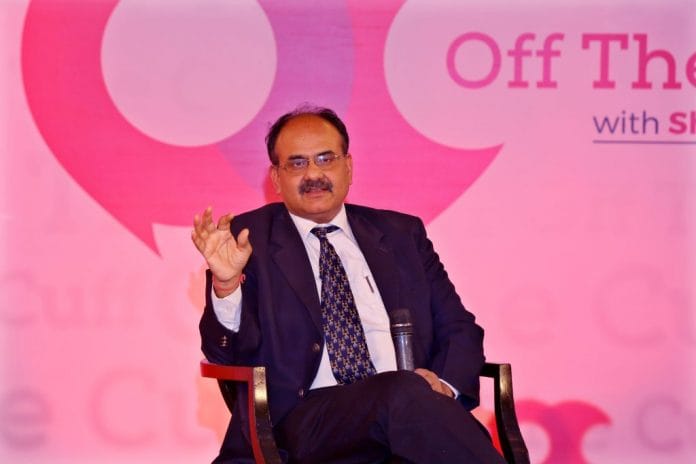Ajay Bhushan Pandey says SC verdict on Aadhaar is historic since it rules biometric ID meets standards of good governance & is not for surveillance.
New Delhi: The Unique Identification Authority of India (UIDAI), which is the nodal agency for Aadhaar, believes that Wednesday’s Supreme Court ruling is historic not just because it upholds the constitutionality of Aadhaar, but also because it says the biometric ID meets the standards of “good governance and constitutional trust”.
“The Supreme Court has passed a historic and landmark verdict. Not only has it upheld the validity of Aadhaar, it has also held the Aadhaar Act meets the concept of limited government, good governance and constitutional trust,” UIDAI chief Ajay Bhushan Pandey told ThePrint in an exclusive interview.
The top court Wednesday ruled in favour of Aadhaar, saying it didn’t violate the Constitution.
Also read: Aadhaar was a lost ‘liberal’ cause and even Google knew it
The UIDAI and the government have been on the back foot on the issue of privacy, with certain sections criticising it for what they believe to be lack of safeguards and alleging that the state plans to use Aadhaar data for surveillance purpose.
“The court has gone on to say the (Aadhaar) Act does not tend to create a surveillance infrastructure, and has further said that Aadhaar ensures dignity of individuals and empowers the marginalised sections of society,” Pandey added.
According to sources in the UIDAI, the verdict’s emphasis on these issues will help steer clear the perception war.
A UPA initiative
While Aadhaar was conceptualised by the Congress-led UPA government, it is Narendra Modi-led BJP government that has given it a decisive push, bringing in an Act and linking it to all of its welfare schemes and initiatives, as well as to financial aspects such as PAN and IT returns.
Making Aadhaar the basis of these is something that has been severely criticised by some sections who claim this impinges on privacy and can lead to exclusion.
“One good thing is that the mandatory nature of Aadhaar for welfare schemes has been upheld… any welfare scheme in which earlier a lot of siphoning and duplication happened will be curbed now,” the UIDAI CEO said.
“At the same time, SC has also upheld mandatory linkage of Aadhaar with PAN card and income tax returns. This will help check tax evasions, benami transaction, etc,” Pandey claimed.
‘Private entities can’t insist on Aadhaar’
However, even as the apex court upheld Aadhaar, it did strike down certain sections of the Act such as Section 33(2), which permits disclosure of authentication information to the government on grounds of “national security” and Section 33(1) which allows disclosure of Aadhaar information to a district judge.
In addition, the top court struck down Section 57 of the Act that allowed private entities and corporate bodies to make Aadhaar mandatory, saying banks, telephone service providers cannot insist on Aadhaar.
Making Aadhaar mandatory for private services has also been a long-standing criticism, especially against the Modi government which has favoured it.
“I believe SC has put certain safeguards and restrictions which will go a long way in strengthening Aadhaar. The court has set aside Section 57 of the Act which permitted the use of Aadhaar by private corporates pursuant to a contract and which did not have the backing of law,” Pandey said.
Also read: BJP heaves a sigh of relief after Supreme Court’s Aadhaar judgment
“So, what the SC judgment implies is any mandatory usage of Aadhaar has to be backed by a statute,” he added.
Asked about Justice D.Y. Chandrachud’s dissenting view, calling Aadhaar “a fraud on the Constitution”, Pandey said “it is the majority judgment that prevails”.







If all entities are allowed to get UID validations, FB/Whatsapp/Twitter would definitely ask for virtual UID for creation of social media accounts. I feel any one can get aadhar validation based on virtual-UID. Then UID automatically universally demanding ID proof.